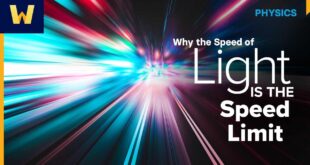
Let’s very first define”customized learning “. The term personalized learning describes a set of instructional methods and methods for adaptation of a learning procedure to an individual’s learning design, character, special needs, background and previous experiences.Everyone’s learning is
based upon previous experiences. As research reveals, there is a substantial improvement in a student’s accomplishment when learning is built on a platform of previous understanding. In their successful book “Mindful Knowing: 101 Proven Strategies for Student and Teacher Success“, Linda and Bruce Campbell demonstrate how crucial a role is the anticipation that learners have. When one’s previous experiences are known, finding out could become more efficient if adjusted and connected with something that individual currently know.Consider this example. Just recently my boy asked me” exactly what is this and exactly what do you need it for? “about the gearshift in my manual transmission vehicle. After a short thought, I explained to him by describing his bike’s shifter and gear mechanisms, which permit him to alter speed/effort ratio. By understanding something from my child’s previous experience and connecting brand-new info to that, I made this brand-new concept simple for him to learn.What if I would be describing it directly from the mechanic’s point of view or drawing photos with an engine, gearbox and all that things? He would probably lose interest and give up after the very first half a minute as he has no ground that could be based upon. As a result, no knowing would happen.To summarize this example, if a person’s previous experience is understood and a brand-new principle might be connected
to it, then far better results will be attained in regards to understanding and learning.Personalized learning in a company What if we imagine a comparable situation in a company setup– there is an employee who has to learn more about the brand-new tool, innovation or process. If
the info is connected to the person’s previous experience, it accelerates learning and, as a result, improves the employee’s efficiency. This staff member is like my kid in the example above. But in my example, I was the one who learnt about my kid’s context and experiences, so, I had the ability to make a link in between the 2– the known and the yet unknown– for the unidentified to be much easier to learn. Exists anyone around in the father role who knows well the employee’s context, can talk his language and learns about the staff member’s previous experiences? I bet, in many cases, there isn’t such a person. How might discovering in the company’s environment be improved so that the employee will not lose interest and offer up simply because the new principle is too complex to capture at once and isn’t really linked to anything he currently experienced?Problems of conventional methods Mentoring One way to substitute the moms and dad’s
role in a business setup is mentoring. The more knowledgeable employee is designated as an adviser to the less skilled employee. With all understanding that the mentor collected by experiencing something in the past, he might understand the concerns and problems that the mentee is facing and assist the learning towards understanding. This model works great, but its constraint is in its scalability.Corporate intranet So, in many cases, instead of someone assisting the worker’s knowing and understanding, the duty to discover the ideal answer to questions is laid on the staff member himself. If the staff member has to find out about a new tool, technology or procedure in a business, he could go and browse a corporate intranet, wiki or whatever sources of info the business has. It is not bad, after all, as by searching and attempting to apply the info he discovered, the staff member might discover some associated things. Still, this method does not seem to be ideal as the worker has to go through a lot of details that is not constantly appropriate, when he discovers the response, it is not always the most suitable response for him if it is not connected to his previous experience.Solution What to do?, you may ask. Exists any much better way to assist an employee to not only discover out the information, but to guarantee the response is connected to his previous experience?In my opinion, exactly what is needed here is a combination of sophisticated search and personalization engines.First, a search engine will narrow the possible sources of info, like documents, websites etc., and then a customization engine will give the top those that are most relevant to the staff member’s previous experience.The online search engine is something that we are used to using every day, like Google. In a corporate environment, it could be a different engine for each details system or some sort of advanced engine, which might query various backend systems and integrate results. But the best ways to make those outcomes more customized, e.g. associated to the staff member’s previous experience?
Or to be a lot more precise, how do we understand exactly what is the worker’s previous experience?How a worker’s experience could be digitalized and made understandable for a device? ? The initial step in that direction is to list for each worker what abilities he has actually found out previously and what is the level of knowledge. It might be done, for instance, by examining his CV utilizing text analytics or by asking him to complete a basic kind with abilities in rows and knowledge levels in columns. This information
already provides some clue, but not with much information. In addition, this is a quite much static view, which doesn’t take into account the learning and experiences happening after those skills had actually been listed. ? The second and already much better case is when, in addition to Competence Matrix, collected in the previous action, HR is gathering information about training participated in, accreditations attained and everything else related to formal learning. For the worker, this could improve the importance of the details found considerably, as the level of his knowledge is known to the system and is upgraded in accordance with official knowing attended. As a result, for example, expert level information will not be revealed to the amateur and vice versa.Still, that is insufficient to make search results genuinely relevant and individual. The customization engine needs much more granular info about exactly what the worker knows, how he chooses to discover, exactly what is easy and what is difficult for him, what type of details matches him best etc.How could this end up being digitalized and examined? ? The third, much more advanced alternative is to integrate the methods already described with collection of info about all discovering activities occurring in real time. Exactly what I’m speaking about is the usage
of Experience API (xAPI)in mix with Knowing Record Shop(LRS). With xAPI it is possible to gather info about the worker’s learning occurring in numerous locations and with an excellent degree of detail.If the company intranet is xAPI enabled, it is possible to collect info about opened
pages and downloaded documents. If the worker’s actions in a factory are tracked with some sensing units, those could be collected as xAPI declarations. If a business utilizes simulations or Virtual/Augmented Truth (VR/AR )for training, actions and events inside the simulation could be tracked and stored as xAPI declarations. If a company uses a Knowing Experience System, like Valamis, for shipment of its training, all the user’s actions are instantly tracked with xAPI.How to make finding out much more customized and effective?When all that info about the staff member is readily available to the customization engine, it could make far more justified guesses about the significance of some details for the staff member. By examining discovering history, it could end up being clear what knowing format is most ideal for the individual, e.g. does reading a post contribute more to the knowing than audio, does he choose longer learning sessions with broad context presented or needs to it be short and directly to the topic, do finding out needs differ depending on time of day or day of week, etc.Even more pertinent outcomes might be produced when the worker’s
knowledge and experience is compared with other staff members ‘experiences and
resemblances discovered in functions, abilities or learning activities. The importance of the details offered to the staff member might be enhanced based on that similarity. This also works well for a new staff member who has no previous history in a business. In the beginning, similarities like role and department in addition to an absence of previous learning history could bring them relevant onboarding products, and after that by analyzing the history of the previous newcomers, a recommendation engine will be feeding the learner with recommendations that are already shown to be appropriate to those who came and went
through onboarding products before.Needless to state, it is not the end of the story, it is only just the start. To bring it to the next level, the loop must be closed and learning need to be used to the customization engine to produce much better significance in time. Analyzing knowing activities, examining what staff members were choosing themselves from outcomes suggested, asking were they pleased with outcomes offered, checking out improved searches– all that will make the suggestion engine improve and adjust all the time using device learning.Conclusion Making discovering personalized has a terrific influence on the knowing results. When brand-new ideas are linked to a person’s previous experience, it leads to better understanding and finding out ends up being more effective.In an organizational environment, production of individualized learning requires technology options to make it cost effective and scalable. Innovation, like a mix of Experience API (xAPI )and Knowing Record Shop(LRS), makes it possible for collection of a staff member’s experiences on a very granular level in digital type. This information could be then leveraged in constructing a tailored learning experience in future knowing activities utilizing a mix of sophisticated search and individualized engines.Of course, none of the technology solutions is best, but by closing the feedback loop from a learner’s activities back to the option, the quality of
answers provided to a learner will be constantly enhancing. Having that, instead of”find out yourself”type of learning, workers could enjoy and experience really tailored learning.
Source
https://www.arcusys.com/blog/personalized-learning-and-how-to-effectively-enhance-it-with-modern-technology
Source
https://www.arcusys.com/blog/personalized-learning-and-how-to-effectively-enhance-it-with-modern-technology
 #Bizwhiznetwork.com Innovation ΛI |Technology News
#Bizwhiznetwork.com Innovation ΛI |Technology News



